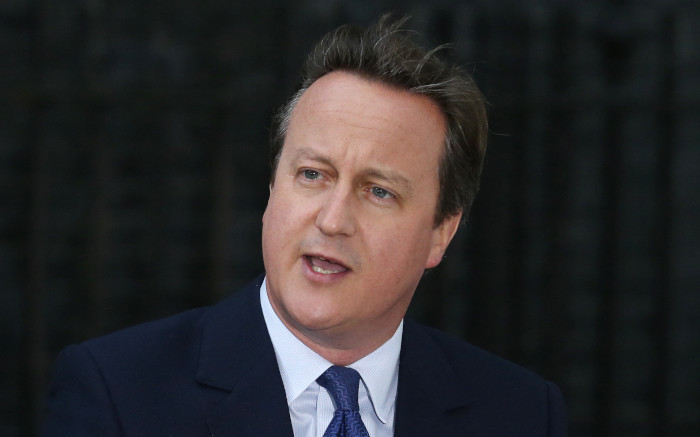
Jacob Zuma's political career could have been over when he was forced to resign as South African president six years ago due to corruption allegations.
Or it could have ended when he was charged with bribery, or when he was accused of rape, or when he went to prison for contempt of court, or when he was suspended from the African National Congress, South Africa's long-standing ruling party.
But Zuma, 82, has recovered remarkably well despite all the threats to his political survival and now has considerable influence over who will lead the country.
The political party Zuma founded six months ago – umKhonto weSizwe, or MK – came third in last week’s general election, upending South Africa’s political landscape. The result contributed to the stunning collapse of the party he once led – the African National Congress, or ANC, which could not achieve an absolute majority for the first time since the beginning of democracy in the country in 1994.
Zuma has the best chance of achieving what analysts and political rivals say his real aim in returning to politics is to punish the ANC, which he says has turned against him, and in particular his former deputy, President Cyril Ramaphosa.
“We will take back our ANC,” Zuma told his supporters in downtown Johannesburg on Monday.
In a rambling 45-minute speech, Zuma took direct aim at Ramaphosa, saying the ANC had been “handed over to criminals who steal money and hide it under the mattress,” referring to a scandal in which more than half a million dollars was stolen from a sofa in one of Ramaphosa's properties.
The ANC remains the most popular party in the country with 40 percent of the vote. However, this is an embarrassing drop of 18 percentage points from the last election in 2019.
Zuma's party received 14.5 percent. MK says it will not form a coalition government with the ANC unless Ramaphosa resigns. ANC leaders, however, have said this is out of the question.
Although Zuma's party exceeded the expectations of most pollsters and analysts, he is challenging the result, claiming that the country's electoral commission colluded with the ANC to rig the election without providing any public evidence. Zuma claims that his party actually won a two-thirds majority.
“We were expecting two-thirds, of course,” said Duduzile Zuma, one of Zuma's daughters, in an interview. But “there are some problems with the manipulation.”
South Africa's highest court Only a few weeks ago, Zuma decided not to He was found in contempt of court for failing to testify before a corruption investigation, which also made him ineligible for the presidency, as the president must be a member of parliament.
Zuma's new party took its name from the armed wing of the ANC during the struggle against apartheid. Zuma was active as an underground fighter for this wing at the time; his political activities led to his arrest in 1963. He spent ten years in prison on Robben Island along with Nelson Mandela and served the ANC after his release from exile.
During the transition from apartheid in the early 1990s, Zuma served as deputy secretary general of the ANC under Ramaphosa. In 1999, Zuma finally became vice president of South Africa's second democratically elected president, Thabo Mbeki.
But Mbeki fired him after he was implicated in bribes in an arms deal. Zuma was later criminally charged in that case; the charges are still pending. Around the same time, Zuma was also charged with raping a family friend who was visiting him at home, but he was acquitted after a trial.
Despite Zuma's falling out with Mbeki, he built a loyal faction within the ANC. He became party leader in 2007 and president of the country in 2009.
He spent nine politically turbulent years in office, during which he was accused of misusing state funds to improve his rural property in his home province of KwaZulu-Natal, and of facilitating the looting of state funds by friends and acquaintances.
After Zuma resigned under pressure in 2018, a judge launched a years-long public inquiry into corruption during his time in office. Mr Zuma was sentenced to 15 months in prison for refusing to testify before the inquiry.
In 2021, Zuma's supporters took to the streets in protest after his imprisonment. The demonstrations spiraled out of control as disillusioned South Africans sparked the worst unrest in parts of the country since the end of apartheid. The unrest left about 350 people dead and caused an estimated $2.6 billion in damage.
Mr. Zuma spent about two months in prison before he was released on medical grounds.
Although South Africans generally don't like their politicians very much, polls show that Ramaphosa is more popular than Zuma. An Ipsos South Africa poll this year found that Zuma has the second highest approval rating among leaders of the main political parties, after Ramaphosa.
Mr Zuma presents himself as an advocate for the struggling black majority, while portraying Mr Ramaphosa, a billionaire investor, as a representative of the interests of wealthy white corporations.
In its manifesto, the MK party states that the state will take over all the country's land and control its natural resources to ensure that the proceeds benefit all South Africans. It also announces an increase in the minimum wage and the creation of a universal health care system.
“There is more poverty, more problems, more crime,” Zuma said during a press conference to launch the party last December. The ANC leadership had failed to fix these problems, he said, so he wanted to do something about it.
But Mpumelelo Mkhabela, a political analyst who has written a book about corruption within the ANCsaid that during his nine-year presidency and more than three decades at the helm of the ruling party, Zuma had failed to drastically change the living conditions of poor black South Africans.
“People might rightly ask why you did not advocate these measures from the beginning,” said Mr Mkhabela.
ANC leaders have not ruled out forming a new government with Zuma, but some South Africans fear that corruption could flourish if that were the case.
But Zuma's supporters say the corruption allegations are baseless. Like former President Donald J. Trump, Zuma has managed to turn trials and investigations into political strength. He portrays himself as a victim of dark forces that want to overthrow him because he stands up for the poor.
Reggie Ngcobo, regional coordinator for MK in KwaZulu-Natal, said Zuma was “just a typical country man” herding his cattle and being treated unfairly in the media. He said he had been given a warm welcome many times at Zuma's estate and that Zuma would improve the lives of the black majority.
When Zuma launched MK, 43-year-old Ngcobo said he gave up his butcher shop and delivery business to volunteer full-time for the party.
With Mr Zuma, he said, “I see hope and a future.”






Recent Comments